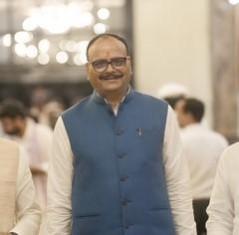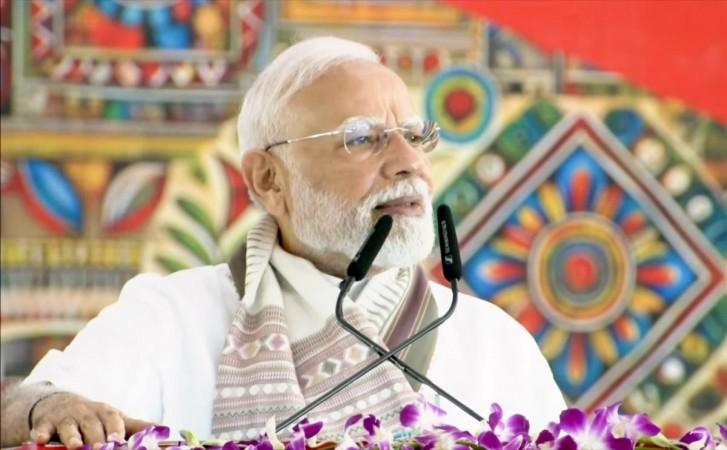
Uttar Pradesh Deputy Chief Minister Brajesh Pathak has made a fervent appeal to the citizens of the state to prioritize Swadeshi products during the upcoming festive season. This call aligns with Prime Minister Narendra Modi's broader initiative to promote Indian-made goods as a means of fostering a self-reliant nation. Pathak's remarks echo the sentiments expressed by PM Modi during his Independence Day address, where he emphasized the importance of self-reliance and national pride.
Pathak stated, "Modi ji had also urged citizens on August 15 that all shopkeepers should only buy and sell Swadeshi goods. I echo the same sentiment and appeal to all residents of the state to purchase only indigenous products." He further elaborated on the significance of promoting Swadeshi, noting that it would strengthen the country. "Promoting Swadeshi will strengthen our country. I also appeal to the people of the state to support local products, as promoting them will strengthen our country," he added.
The Deputy Chief Minister's appeal comes at a time when the nation is gearing up for a series of cultural celebrations, including Navratri, Vijayadashami, Dhanteras, and Diwali. These festivals, according to PM Modi, should not only be seen as cultural events but also as opportunities to celebrate self-reliance. "This is the season of festivals -- Navratri, Vijayadashami, Dhanteras, Diwali... these are not just cultural celebrations, but should also be festivals of self-reliance," the Prime Minister said.

Promoting Swadeshi Amid Global Trade Tensions
In a related development, PM Modi has reiterated his call for the promotion of Swadeshi goods amid concerns over tariffs imposed by the United States. The Trump administration has set a deadline for imposing an additional 25 percent tariff on the import of Indian goods, raising the total levy to 50 percent. Speaking at an event in Ahmedabad, PM Modi urged shopkeepers to display 'Swadeshi Boards' outside their shops during the festive season.
"This is the season of festivals. Now Navratri, Vijayadashami, Dhanteras, Diwali... all these festivals are coming. These are celebrations of our culture, but they should also be celebrations of self-reliance. Therefore, I want to reiterate my request to you once again that we must adopt a mantra in our lives: whatever we buy will be 'Made in India', it will be indigenous," he said.
The Prime Minister's emphasis on Swadeshi products is part of a broader strategy to protect small entrepreneurs and farmers. He has announced upcoming reforms in the Goods and Services Tax (GST) regime, promising a 'double bonus of happiness' for businesses and families this Diwali. Highlighting India's economic achievements, PM Modi claimed that over the past 11 years, 25 crore people have risen out of poverty, creating a 'neo-middle class' that, alongside the existing middle class, is driving the nation's growth.
"When an individual overcomes poverty, they emerge as a source of new strength, becoming part of what we now call the 'neo-middle class'. Today, this neo-middle class, along with the longstanding middle class, has grown into a significant force driving the progress of our nation. Our mission is to continue empowering both the middle class and the neo-middle class, recognising their pivotal role in shaping the country's future," he stated.
The Prime Minister also emphasized his government's commitment to providing a dignified life for the urban poor, pointing to new housing projects as a 'living example' of this effort. He highlighted Gujarat's emergence as a major industrial and manufacturing hub, noting that global and domestic companies are setting up factories in the state, with Gujarat also becoming a key center for electric vehicle manufacturing.

















